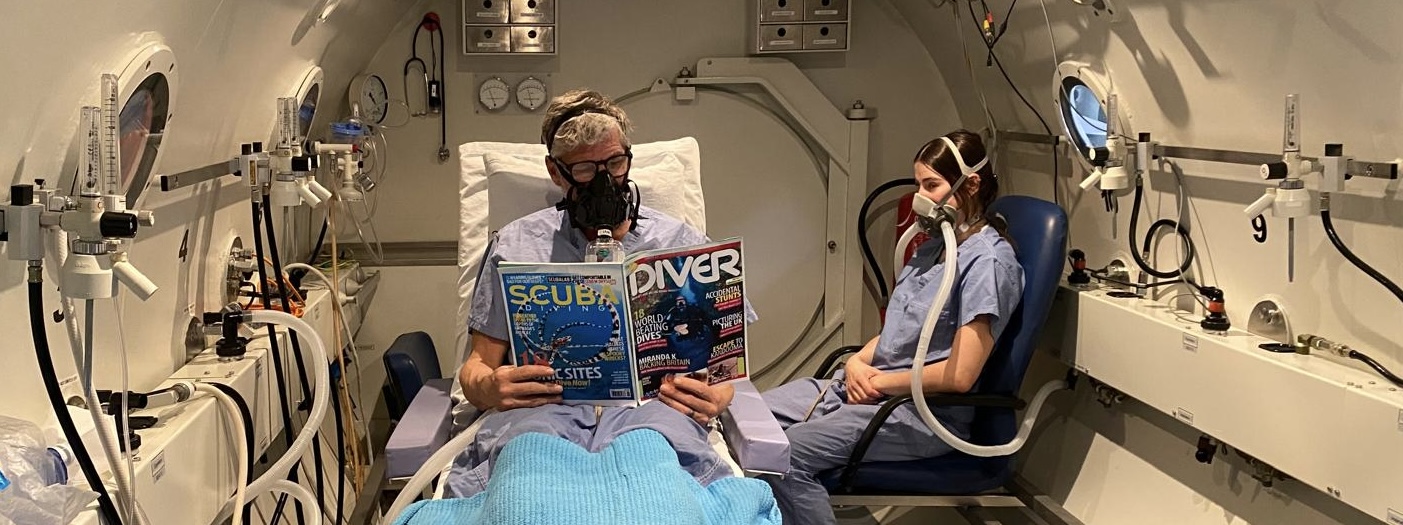Depending on how DCI has shown itself in a diver, there are different risks (some quite severe) to not getting prompt treatment.
Joint Pains After DCI
If joint pains remain untreated, there is a possibility that small areas of bone or cartilage may become damaged. This condition is called is called osteonecrosis and used to be common amongst commercial divers. When this occurs bones may become brittle possibly leading to arthritis.
Neurological DCI
In cases of neurological DCI the spinal cord could remain permanently damaged, the symptoms of which may vary considerably between individuals. In cases such as these where a patient suffers from a subsequent episodes of decompression illness as a result of further diving activity the chances of a full recovery may be reduced considerably.
Severe Cases of DCI
In severe cases of Decompression illness where DCI is not treated the diver may sustain a permanent residual injury such as: muscular weakness, neurological damage and even sexual dysfunction.





